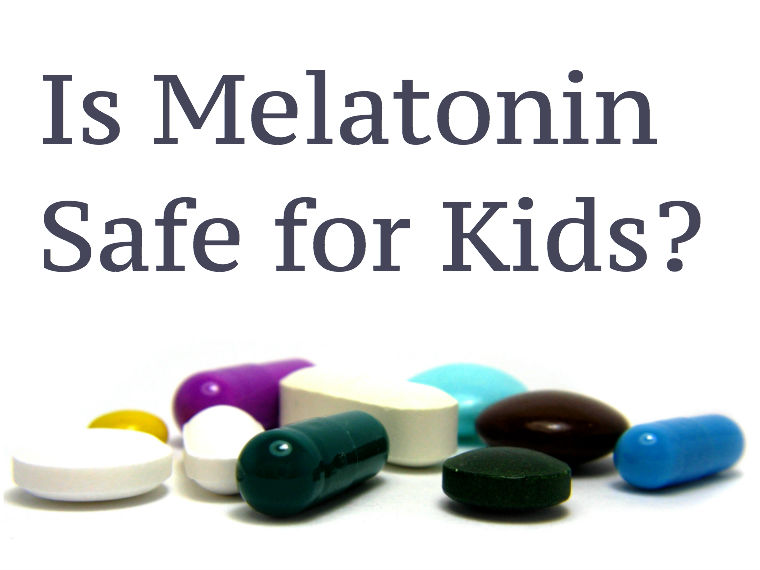Introduction
Melatonin is a hormone produced naturally by the body’s pineal gland, which helps regulate sleep-wake cycles. It’s commonly used as a supplement to aid in sleep for both adults and children. However, there are concerns about its safety and efficacy, particularly when used in children. In this comprehensive guide, we’ll explore the potential benefits and risks of melatonin for kids, along with guidelines for safe use.
Understanding Melatonin
Melatonin is a hormone that helps regulate the body’s internal clock, signaling to the brain when it’s time to sleep. It’s produced in response to darkness and peaks during the night, promoting sleepiness. Melatonin supplements are often used to help regulate sleep in individuals with sleep disorders or jet lag.
Melatonin Use in Children
Melatonin supplements are sometimes used in children to address sleep issues such as insomnia, bedtime resistance, and delayed sleep phase disorder. However, the American Academy of Pediatrics (AAP) advises caution when using melatonin in children, as its long-term effects are not well understood.
Potential Benefits of Melatonin for Kids
Improved Sleep Quality
Some studies suggest that melatonin supplementation can improve sleep quality and duration in children with sleep disorders or other sleep disturbances.
Regulation of Sleep-Wake Cycles
Melatonin may help regulate circadian rhythms and promote more consistent sleep-wake cycles in children with irregular sleep patterns.
Reduced Bedtime Resistance
Melatonin supplements may help reduce bedtime resistance and make it easier for children to fall asleep at night.
Risks and Concerns
Hormonal Effects
Because melatonin is a hormone, there are concerns about its potential impact on the developing endocrine system in children. Long-term use of melatonin supplements may affect the body’s natural production of melatonin.
Daytime Drowsiness
Some children may experience daytime drowsiness or grogginess as a side effect of melatonin supplementation, especially if the dosage is too high or taken too late at night.
Changes in Mood or Behavior
In some cases, melatonin supplements may cause changes in mood or behavior in children, such as irritability, anxiety, or hyperactivity.
Guidelines for Safe Use
Consult with a Pediatrician
Before giving melatonin supplements to a child, it’s essential to consult with a pediatrician to determine the underlying cause of sleep issues and discuss the potential risks and benefits of melatonin.
Use the Lowest Effective Dose
Start with the lowest effective dose of melatonin and monitor your child’s response closely. Avoid increasing the dosage without consulting a healthcare professional.
Establish a Bedtime Routine
Incorporate healthy sleep habits and establish a consistent bedtime routine to promote better sleep hygiene in children. Limit screen time before bed and create a calm, relaxing environment conducive to sleep.
Limit Long-Term Use
Use melatonin supplements for short-term relief of sleep issues rather than as a long-term solution. If sleep problems persist, seek guidance from a healthcare professional to address underlying issues.
Conclusion
Melatonin supplements may offer benefits for children with sleep disorders or other sleep disturbances, but it’s essential to use them cautiously and under the guidance of a pediatrician. While melatonin can help regulate sleep-wake cycles and improve sleep quality in some children, there are concerns about its long-term safety and potential side effects. Parents should weigh the potential risks and benefits of melatonin supplementation and explore alternative strategies for promoting healthy sleep habits in children.
FAQs
At what age can children safely take melatonin?
There is no specific age at which children can safely take melatonin, as individual responses may vary. It’s best to consult with a pediatrician before giving melatonin supplements to children, especially younger children or those with underlying health conditions.
How should melatonin be administered to children?
Melatonin supplements are available in various forms, including tablets, capsules, and liquid formulations. Follow the dosage instructions provided by a healthcare professional or the manufacturer, and administer melatonin approximately 30-60 minutes before bedtime.
Can melatonin be used to treat sleep disorders in children?
Melatonin supplements may be used to treat sleep disorders such as insomnia, bedtime resistance, and delayed sleep phase disorder in children under the guidance of a healthcare professional. However, it’s essential to address underlying issues contributing to sleep disturbances and explore behavioral interventions as well.
Are there any interactions between melatonin and other medications or supplements?
Melatonin may interact with certain medications or supplements, including antidepressants, blood thinners, and sedatives. It’s important to inform your child’s healthcare provider about any medications or supplements they are taking before starting melatonin supplementation.
Are there any natural alternatives to melatonin for promoting better sleep in children?
Yes, there are several natural alternatives to melatonin for promoting better sleep in children, including establishing a consistent bedtime routine, limiting screen time before bed, creating a calm and comfortable sleep environment, and promoting regular physical activity during the day.
Can melatonin be habit-forming in children?
There is limited evidence to suggest that melatonin is habit-forming in children when used as directed. However, it’s essential to use melatonin supplements judiciously and under the guidance of a healthcare professional to avoid dependence or tolerance.
What should parents do if their child experiences side effects from melatonin supplementation?
If a child experiences side effects such as daytime drowsiness, changes in mood or behavior, or other adverse reactions to melatonin supplementation, it’s essential to discontinue use and consult with a healthcare professional. They can help determine the underlying cause of the side effects and provide guidance on alternative approaches to promoting healthy sleep in children






